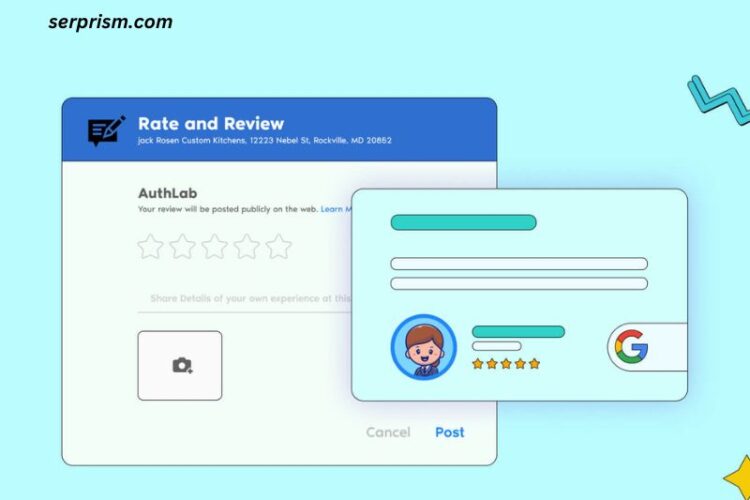
In the ever-evolving world of search engine optimization (SEO), Google frequently rolls out updates that reshape how websites are ranked and indexed. While these updates aim to improve the user experience and the quality of search results, they often have unintended consequences for smaller websites. The phrase “Google Update Hurt Smaller Websites” has become a common complaint among webmasters, SEO professionals, and online business owners. But why does this happen, and what can smaller websites do to recover from the negative impacts of Google’s algorithm changes?
In this article, we will explore the reasons behind how Google Update Hurt Smaller Websites Smaller Websites, the types of updates that have the most significant impact, and actionable strategies smaller websites can use to adapt to these changes and regain their rankings.
1. The Google Update Hurt Smaller Websites Algorithm: A Moving Target
Google’s search algorithm is complex and continually evolving. Every year, Google makes hundreds of updates, ranging from minor tweaks to major overhauls. While the goal of these updates is generally to improve search result relevance and overall user experience, the reality is that many smaller websites get caught in the crossfire.
Smaller websites often struggle to keep up with these frequent changes due to limited resources and a lack of SEO expertise. As a result, they may see their traffic and rankings fluctuate significantly, especially when major updates are rolled out.
2. Why Do Google Update Hurt Smaller Websites More Than Larger Ones?
Several factors contribute to why smaller websites tend to be hit harder by Google Update Hurt Smaller Websites compared to their larger counterparts.
a. Limited Domain Authority
Larger websites tend to have a higher domain authority (DA), a metric that reflects the trust and credibility Google assigns to a website. Domain authority is built over time through factors like backlinks, content quality, and user engagement. Bigger websites typically have more resources to build a robust link profile and produce high-quality content, which makes it easier for them to weather Google Update Hurt Smaller Websites.
On the other hand, smaller websites often struggle to build domain authority because they have fewer backlinks, limited content, and smaller audiences. As a result, when a Google Update Hurt Smaller Websites changes the ranking criteria (such as prioritizing high-authority sites), smaller websites see a significant drop in rankings and organic traffic.
b. Lack of Content Depth
Google’s recent updates, such as the Page Experience update, Core Web Vitals update, and BERT algorithm update, place a significant emphasis on content quality, relevance, and user experience. Larger websites typically have dedicated content teams that produce in-depth, high-quality content on a wide range of topics. This gives them an edge in securing higher rankings.
Smaller websites, on the other hand, may not have the resources to create content at the same scale. They may also lack the time and expertise to optimize their content to meet Google’s evolving standards. As a result, when Google introduces updates that favor comprehensive, well-structured content, smaller sites can lose visibility.
c. Technical SEO Limitations
Technical SEO plays a crucial role in how a website ranks on Google. Larger websites often have teams of SEO specialists who ensure that their website’s technical aspects—such as site speed, mobile-friendliness, and secure connections—are optimized to meet Google’s ranking criteria.
Smaller websites, however, often lack the technical expertise needed to optimize their websites for the latest updates. Issues like slow page load times, poor mobile usability, and weak site architecture can all lead to penalties or lower rankings after a Google Update Hurt Smaller Websites.
3. Major Google Update Hurt Smaller Websites That Have Impacted Smaller Websites
Over the years, there have been several significant updates that have had a notable impact on smaller websites. Understanding these updates can help website owners prepare for and adapt to future changes.
a. The Core Algorithm Updates
Google’s core algorithm updates are some of the most impactful changes in the search landscape. These updates target a wide range of ranking factors, including content quality, user experience, and the overall relevance of a website. Websites that do not meet the updated standards may experience a drop in rankings.
For smaller websites, a core update can feel like a massive setback. If a site’s content or technical aspects are deemed subpar in comparison to competitors, it may be de-indexed or pushed to lower positions in the search results, leading to a decline in organic traffic.
b. The Mobile-First Indexing Update
As mobile usage continues to dominate the web, Google introduced mobile-first indexing. This update means that Google predominantly uses the mobile version of a website to determine rankings, rather than the desktop version. Smaller websites that haven’t optimized their sites for mobile users may suffer a significant drop in rankings and visibility after this update.
c. The Page Experience Update
Google’s Page Experience update introduced a new ranking signal that focused on user experience (UX). This update considers factors such as page load speed, mobile-friendliness, and whether a website provides a secure connection (HTTPS). Smaller websites with slow load times or poor mobile optimization may find it difficult to compete with larger, more optimized websites in the search rankings.
d. The E-A-T Guidelines Update
E-A-T (Expertise, Authoritativeness, and Trustworthiness) became an important part of Google’s ranking criteria following several updates. Google started prioritizing websites that demonstrate high levels of expertise, authority, and trustworthiness in their content. Smaller websites with less established reputations may struggle to gain visibility, as they lack the backlink profile and content authority that larger, more established websites have.
4. Strategies for Smaller Websites to Recover from Google Update Hurt Smaller Websites
While it can be frustrating to see rankings drop after a Google Update Hurt Smaller Websites, there are several steps smaller websites can take to recover and even improve their SEO performance.
a. Focus on Content Quality and Relevance
Google’s core updates often prioritize high-quality content that provides real value to users. Smaller websites can recover by focusing on creating in-depth, well-researched, and informative content that answers the search intent behind keywords.
Make sure your content is original, authoritative, and useful. Try to cover topics comprehensively, and update older content to keep it relevant. Use long-tail keywords and natural language to better align with Google’s focus on user experience.
b. Improve Technical SEO
Technical SEO is essential for ranking well on Google. Ensure that your website is mobile-friendly, loads quickly, and has a secure HTTPS connection. Use tools like Google PageSpeed Insights to analyze your site’s speed and identify areas for improvement.
Additionally, check your website for any crawl issues, broken links, or duplicate content that may negatively impact rankings. A well-structured site with proper internal linking is also important to help Google crawl and index your pages effectively.
c. Build High-Quality Backlinks
Backlinks remain one of the most important ranking factors in Google’s algorithm. For smaller websites, building a strong backlink profile can help boost authority and improve rankings.
Focus on acquiring high-quality backlinks from reputable sources within your niche. You can achieve this through guest blogging, partnerships, and creating shareable content that naturally attracts links. Avoid using black-hat techniques like buying backlinks, as these can lead to penalties.
d. Optimize for User Experience
Google’s focus on user experience is clear in several updates, including the Page Experience update. To comply with these standards, ensure that your website is easy to navigate, visually appealing, and provides a positive experience for visitors.
Make your site mobile-friendly, reduce pop-ups, and optimize your site’s structure to make it easy for users to find the information they need quickly. Providing a good user experience can lead to longer dwell times, lower bounce rates, and ultimately better rankings.
e. Monitor Algorithm Updates and Stay Informed
Keeping track of Google’s algorithm updates is crucial for any website. While it’s difficult to predict the exact changes that each update will bring, staying informed allows you to make timely adjustments to your SEO strategy.
Use SEO tools like Google Analytics, Google Search Console, and third-party platforms to monitor your website’s performance. If you notice a sudden drop in traffic after an update, investigate which pages have been affected and identify areas for improvement.
Conclusion
While Google Update Hurt Smaller Websites are designed to improve search results for users, they often have a disproportionate impact on smaller websites. Limited resources, lower domain authority, and less robust content and technical SEO practices can make smaller websites more vulnerable to ranking drops. However, by focusing on high-quality content, improving technical SEO, building backlinks, and optimizing user experience, smaller websites can recover from the impact of these updates and continue to grow their online presence.
Staying informed about Google’s algorithm changes and continuously refining your SEO strategy is key to long-term success in the search rankings. By implementing these strategies, smaller websites can not only survive but thrive in the face of Google’s evolving search landscape.




